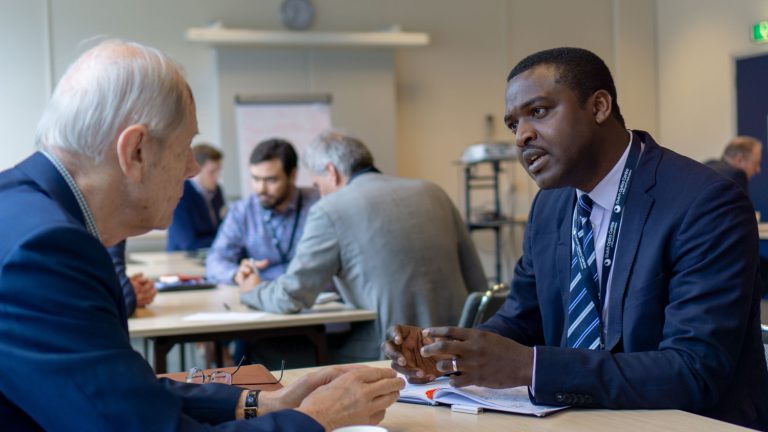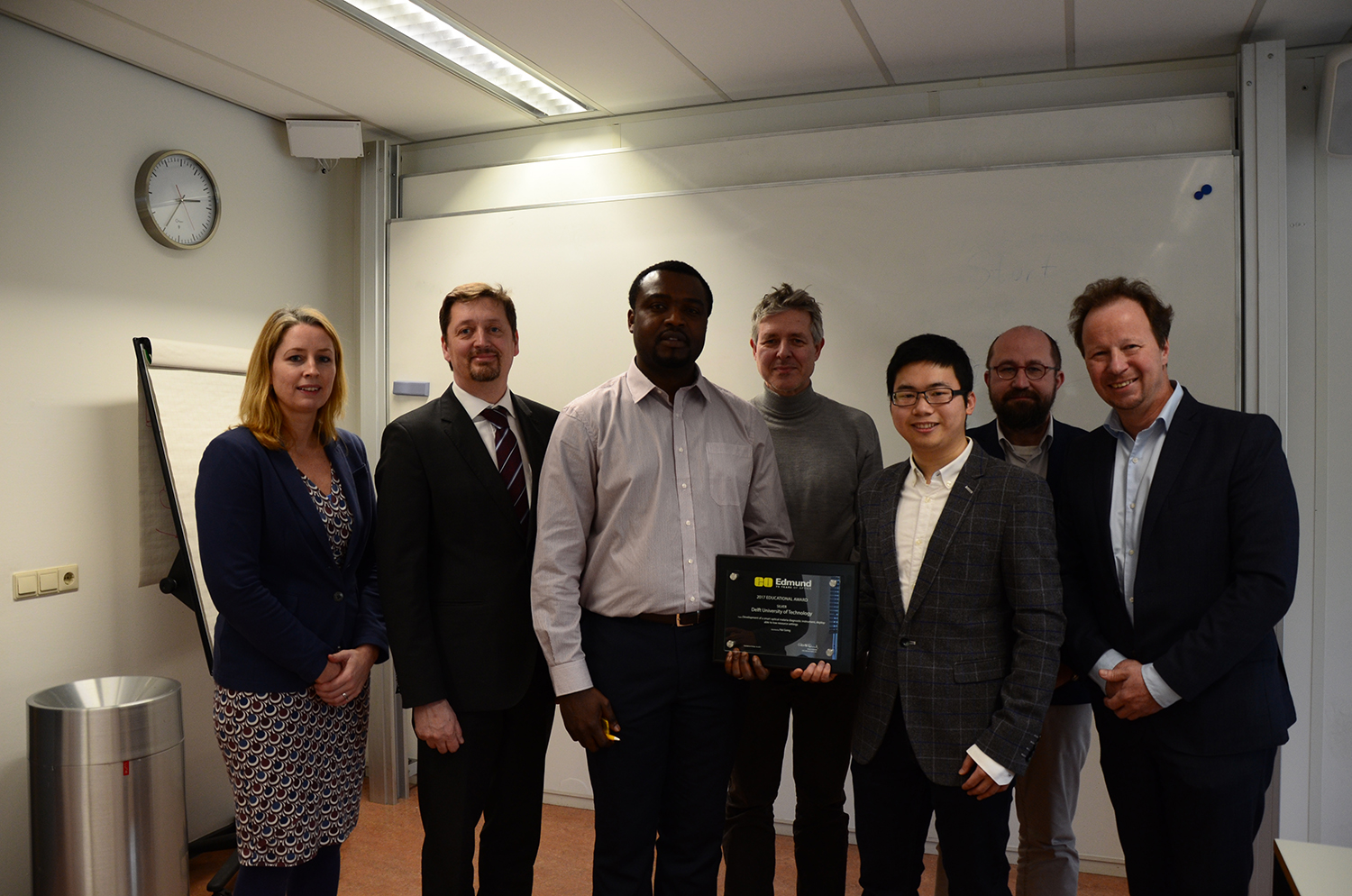TU Delft researchers Tope Agbana and Hai Gong received the Edmund Optics Silver Award during a mini-symposium for the development of the Optical Smart Malaria Diagnostic (OSMD) project. The project aims to diagnose malaria with little more than a smartphone.
Tope Agbana and Hai Gong holding the award, flanked by Professor Michel Verhaegen (right) (Photo: Anqi Fu)
Correctly diagnosing malaria is crucial. But in practice, it often goes awry, as Agbana explains. “If a child has a fever, for instance, the community health worker may surmise that the patient has malaria just by feeling the child’s temperature with their hand. But all too often the diagnosis is incorrect, and the wrong medication is administered, either because the child’s particular strain of malaria has not been identified, or the kid doesn’t have malaria at all.”
Under a microscope, malaria shows up in infected red blood cells. A dark spot surrounded by a lighter ring is a tell-tale sign. The World Health Organisation recommends the inspection of 100 microscopy stills of one person’s sample to make a correct diagnosis. So even with a microscope, diagnosing malaria takes time and effort.
A small glass ball in front of the camera lens can transform a smartphone into a modest microscope (8.5 X). The built-in zoom function increases the magnification sufficiently enough to detect the rings in an infected blood sample.
Edmund Optics representative, Niklas Saxen from Finland, said the OSMD was awarded the Silver Award because of its novelty and that the finding fits well in the company’s philosophy of saving the world through optics.
It’s still early days for the malaria detection tool. Agbana has plenty of ideas to improve the current set-up. For instance, he’d like to be able to detect infected cells without staining the sample. He is also considering using a fluorescent dye to make detection easier and more reliable. Additionally, he is looking into ways of enlarging the field of vision to reduce the required number of stills.
- Read more about the tool.
 Agbana during pitch (Photo: Edwin Bakker, TNO)
Agbana during pitch (Photo: Edwin Bakker, TNO)UPDATE 18 APRIL 2018
PhD candidate Tope Agbana won the pitch competition of the Dutch Optical Centre Discovery Day (DOC Day) with his malaria project. The event was organised in collaboration with Yes!Delft, TU Delft and TNO. It offers a podium to the newest innovations from national and international partners, networks, start-ups and spin offs. It also provides PhD students and Postdocs the support to start their own company. In the most recent edition held on the 12 April 2018, Agbana, won the best start-up pitch award for his presentation on his Optical Smart Malaria Diagnostic Project.
Heb je een vraag of opmerking over dit artikel?
j.w.wassink@tudelft.nl


Comments are closed.